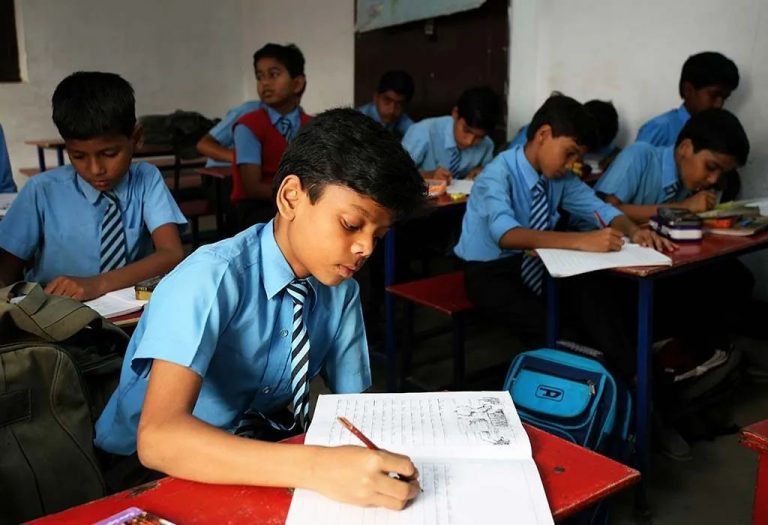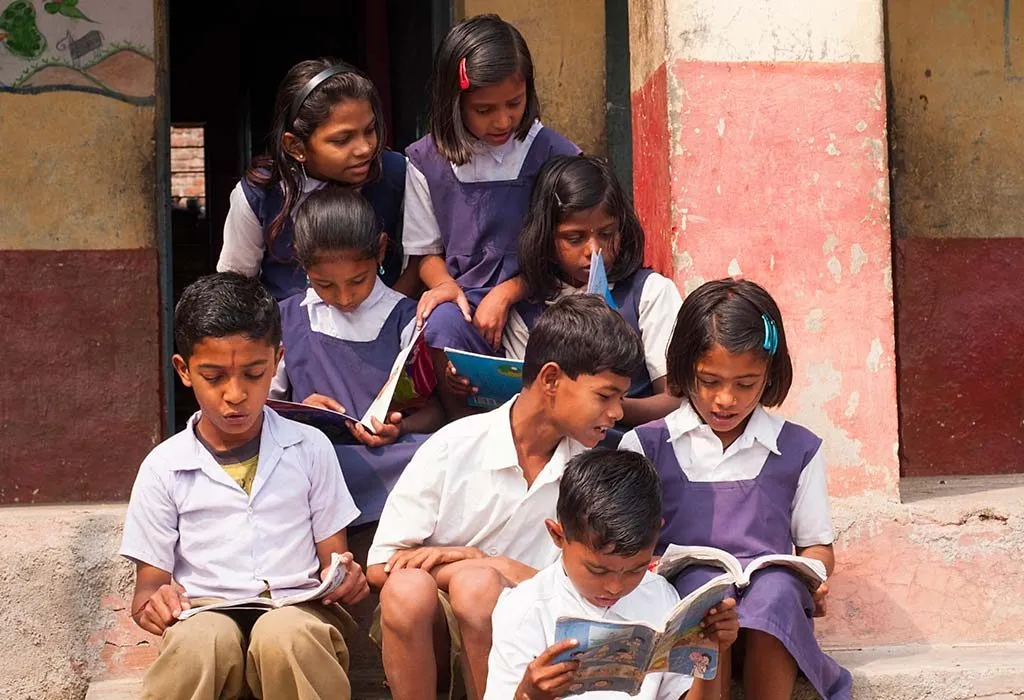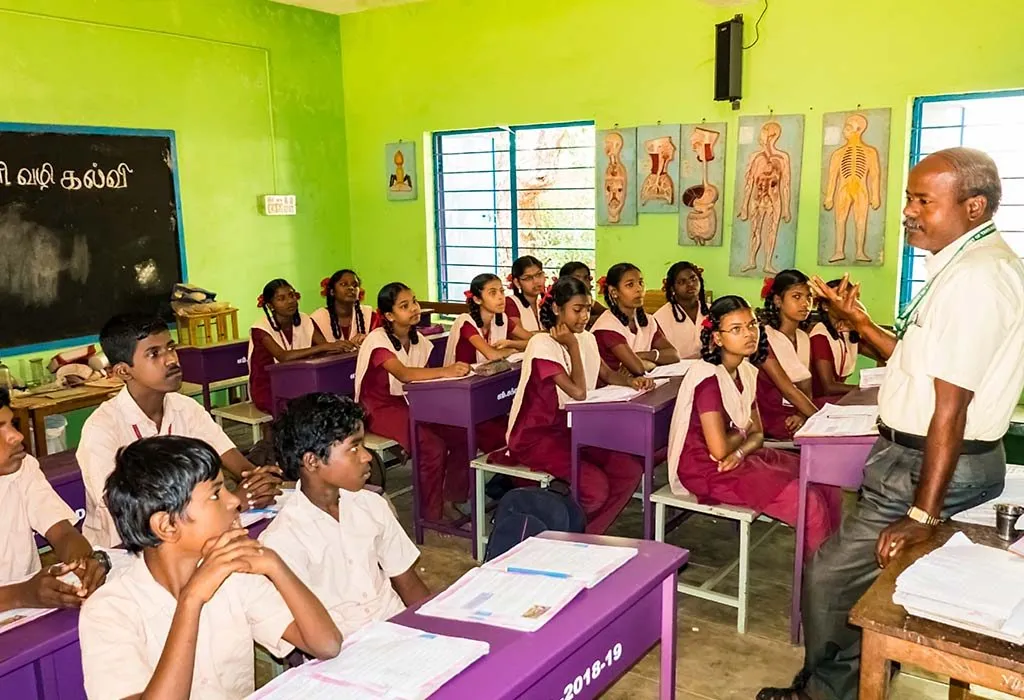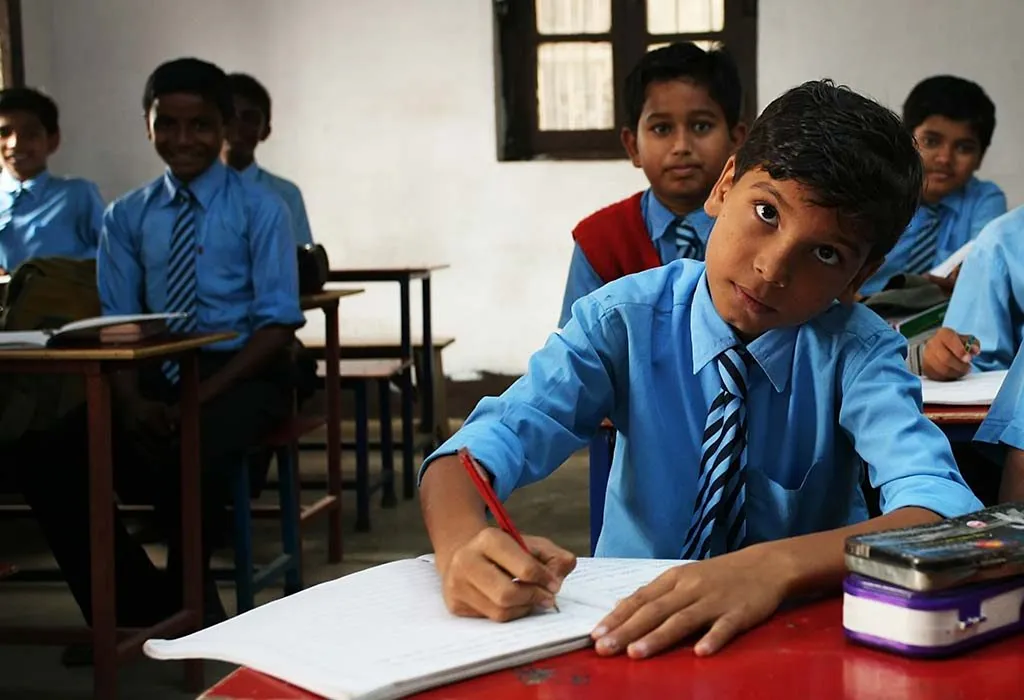The No-Detention Policy – Everything That Parents Should Know
As a society, we constantly seek ways to shield our children while aiding their growth, development and success. Despite this, specific policies and administration in educational organisations have heightened the pressure to succeed and achieve their goals. This causes worry as parents because we want to prevent children from feeling helpless and overwhelmed. We fret that they will fear attempting things a second time if they fail. Our schools shoulder responsibility for our children’s welfare and progress, but in an attempt to reduce drop-outs, our schools might be making children fearful of failure permanently. This article attempts to explain the non-detention policy of the RTE Act and how it needs to be revised to improve Indian education.
What Is the No-Detention Policy?
The no-detention policy in education (NDP) is under the Right to Education Act, which deems that no student should fail or be barred from school until they complete their elementary education. This covers classes 1 through 8. It means that children will inevitably be promoted to the next class. No examinations are conducted for elementary school. Students are assessed through CCE (a process of Continuous and Comprehensive Evaluation).
The no-detention policy aims to reduce the number of out-of-school children by giving them primary education in a safe environment. The aim is to provide education without damaging students’ self-esteem and reduce the social stigma associated with failure (1).
What is the Right to Education (RTE) Act?
Enacted on 4 August 2009, the 86th Amendment to the Right to Education Act (RTE Act) is a Government of India initiative to improve education in the nation. It makes free and compulsory full-time elementary education necessary for children between 6 and 14. This means that all schools must be fair and equal and provide education to children irrespective of their age, gender, caste, or financial situation (2). Some of the main features of this Act include (2):
- Outlining education as a fundamental right of every child
- 25% of seats must be reserved for children from lower-income families by private schools
- Children undergoing elementary education cannot be made to repeat a year, expected to write/pass a board examination, or be expelled
- It outlines provisions for children who have previously dropped out of school
- All government and aided schools are expected to create a School Management Committee, with 75% of its members comprised of parents or guardians.
Pros of the No-Detention Policy
There are some key merits associated with the No Detention Policy in education. Here are the advantages of the no-detention policy:
1. Increase in Student Enrolment
The NDP allows children to learn fundamentals and take a keen interest in studies without fear of failure. This ensures that the number of children enrolled in school will undoubtedly improve, especially among female students. Along with the government’s mid-day meal system, the overall enrolment of children, especially in rural India, has significantly improved.
2. Children Might Remain in School Long Enough to Earn a Sustainable Livelihood
Middle school, from 5th to 8th grade, can be crucial in learning. The policy of no detention until class 8 enables students to get through these critical years and can assist them in finishing their education. This helps them develop skills that can help them find sustainable employment.
3. Encouragement to Learn Regional Languages & Vocational Skills
The NDP helps to bring in the focus on learning regional languages and vocational skills. Periodic evaluations are conducted for children with a keen focus on their regional language and some vocational skill development. Points accrued can be accumulated and used against fee waivers while pursuing a diploma in some vocational skill.
Cons of the No-Detention Policy
The NDP, with all its alluring merits, also has its flaws:
1. Impact on the Standard of Education
The standard of education can be negatively impacted because there are no consequences for misbehaviour or poor learning. This means that students can, at will, refuse to study or work on improving a skill. Consequently, a lack of quality education in villages and rural India could push children towards a bleak future.
2. Hard Work is Not Sufficiently Rewarded
Not having an assessment at the end of the year encourages students to have a half-hearted attitude towards education. On the other hand, children who work hard and learn well are not rewarded for continuing down a winning path. The system makes no distinction between an average student and a good one, which could deter earnest students.
3. Teachers Seem Apathetic to Learning Issues
Since the NDP allows children to graduate even with minimal effort, teachers and the education department may be unable to guide weak children. The teacher’s training programs in India have not taken into account the effort that needs to be made by the teachers.
4. Unclear Future for Students
If the quality of education becomes uncertain, then the economic independence of today’s children becomes questionable, too. Children from poor economic backgrounds without proper education or skills will suffer to make a livelihood. Children from economically strong backgrounds do not stand a better chance either because they are used to a pressure-free environment and crumble when forced to put in an effort for grade 9 examinations.
5. Impact on Women Empowerment Programs
The girl child in India is already languishing from a lack of quality education. Programs that enable women’s empowerment will become directionless without girl children being adequately educated.
6. No Value for Academic Outcomes
Without a proper system of grading and assessing students, children may not understand the value of working hard and acquiring knowledge. The academic outcome in schools will drop considerably.
Why Is the No-Detention Policy Being Reconsidered, and What Is the New Suggestion?
Several states like Delhi, Kerala, and Haryana have raised objections against the NDP because it creates an environment of extreme pressure in grade 9. This leads to too many drop-outs in standard 9 when education is at a crucial stage. It also points to the fact that children have a casual attitude towards learning because they know they will be promoted at any cost. According to the RTE second amendment, the new suggestion is that an end-of-the-year exam will be conducted in classes 5 and 8. A child failing these exams will be given remedial classes and a chance for re-examination.
What is the Stand of Various States On the No Detention Policy?
The No Detention Policy has stirred controversy amongst various states as they weigh its benefits against the potential damage it can do to the quality of education provided to children under this policy. This has divided the states, some favouring it while others stand against its implementation. Here is a look at how some states view the pros and cons of No Detention Policy:
| In Favour | Against |
| Maharashtra – Believes states should have autonomy in deciding which policy to follow. They have seen a reduction in drop-out rates and improved students’ self-esteem. | Kerala – Believes students should repeat a year to cope with the level requirements rather than progress to the next stage due to the policy and feel the pressure down the line. |
| Karnataka – Believes that the policy increases children’s interest in studying and education. Additionally, they agree that Year-End evaluation should be conducted to identify children with lower scores and find ways to aid them. | Haryana – Believes the policy decreases the commitment of teachers, students, institutions, and parents to education. They believe the older testing system promoted a competitive nature and encouraged students to study. |
| Telangana – Believes the policy reduces fear of failure, detention, and stigma and helps kids learn better. However, they feel the quality of the Continuous and Comprehensive Evaluation (CCE) must be improved. | Delhi – Believes the policy should only be applicable till standard 3 as it increases incidences of misbehaviour, lack of motivation, and bad results due to lack of repercussions. |
Is It Beneficial to Dismiss the No-Detention Policy Altogether?
The NDP has its merits and pitfalls. However, completely doing away with the policy may not be the answer we are looking for. Here is why:
- Not having exams to determine a child’s merit is good if teachers and the education system can interpret the policy correctly. Continuous Evaluation, if used correctly, can revolutionise teaching. However, several schools have not implemented this correctly, so there is no result for each academic year. The policy isn’t responsible for children’s lack of interest in good education. If schools take periodic assessments seriously, they will help identify what focus certain children require and which ones are already doing well.
- When the policy change was implemented, teachers were not sufficiently trained to meet the change. In many schools, CCE was reduced to ‘project completion,’ which burdened parents. Many schools also never implemented an increase in the student-teacher ratio, which affected student assessment.
- The quality of Teacher Training in India needs to be reconsidered. Quality education is possible if the infrastructure, teaching methodology, and teaching quality improve. Teachers should be held responsible for their students’ learning outcomes even without an examination to determine their fate. One policy change alone cannot ensure that this will happen.
How Should the Policy Be Implemented Again?
The no-detention policy will benefit everyone in the long run if certain changes can be implemented:
- Measure the learning and knowledge retention of children consistently.
- Create reward-based learning and performance-driven principles at every stage so that children grasp the worth of education.
- Work on changing the mindsets of all stakeholders, such as teachers, parents, and children. A provision should hold all stakeholders accountable for the children’s attendance and performance.
- Focus away from a pass-or-fail system and on improving our country’s education quality.
- Keep in mind the all-round development of today’s youngsters to enable a robust future.
FAQs
1. Why are some people against the No Detention Policy?
Some people believe that the policy’s damage outweighs its potential benefits. Some of the disadvantages of the NDP include a lack of motivation amongst students to study as there’s no evaluation method or failing a stage. Additionally, teachers haven’t been trained to adapt to the new requirements under the policy, particularly the Comprehensive and Continuous Evaluation (CCE) process. It also fails to identify learning difficulties that children might be facing, leading to added pressure in the later stages.
2. Is the No Detention Policy still applicable?
The policy is still applicable but has been modified to address shortcomings. Based on a ruling by the Directorate of Education has removed the policy for students in Class 5 and Class 8, stating that they are required to score 25% marks in the mid-term exams and 33% in the annual exams to be promoted to the next stage.
3. Under which article is the No Detention Policy entered?
The No Detention policy has been entered under Article 16 of the Right to Education Act.
Children need to understand the need to be educated, but they should be spared the trauma and stigma attached to failure. Several countries have successfully implemented similar policies without affecting the quality of education. We must invest in better infrastructure and stronger teaching methodologies for any education policy to succeed.
References/Resources:
1. No Detention under the RTE Act: The policy options; Care India; https://www.careindia.org/wp-content/uploads/2018/07/NDP-final.pdf; June 2018
2. Right to Education Act 2009; Care India; https://www.careindia.org/blog/right-to-education-act-2009/
Also Read:
RTE School Admission
Unexpected Benefits of Homeschooling
Tips for Choosing the Best School for Your Child
Pros and Cons of Getting Education at Boarding School
Education Boards in India – CBSE, ICSE, IB, State Board
List of Government Schemes for School Education in India
Was This Article Helpful?
Parenting is a huge responsibility, for you as a caregiver, but also for us as a parenting content platform. We understand that and take our responsibility of creating credible content seriously. FirstCry Parenting articles are written and published only after extensive research using factually sound references to deliver quality content that is accurate, validated by experts, and completely reliable. To understand how we go about creating content that is credible, read our editorial policy here.
















.svg)
















